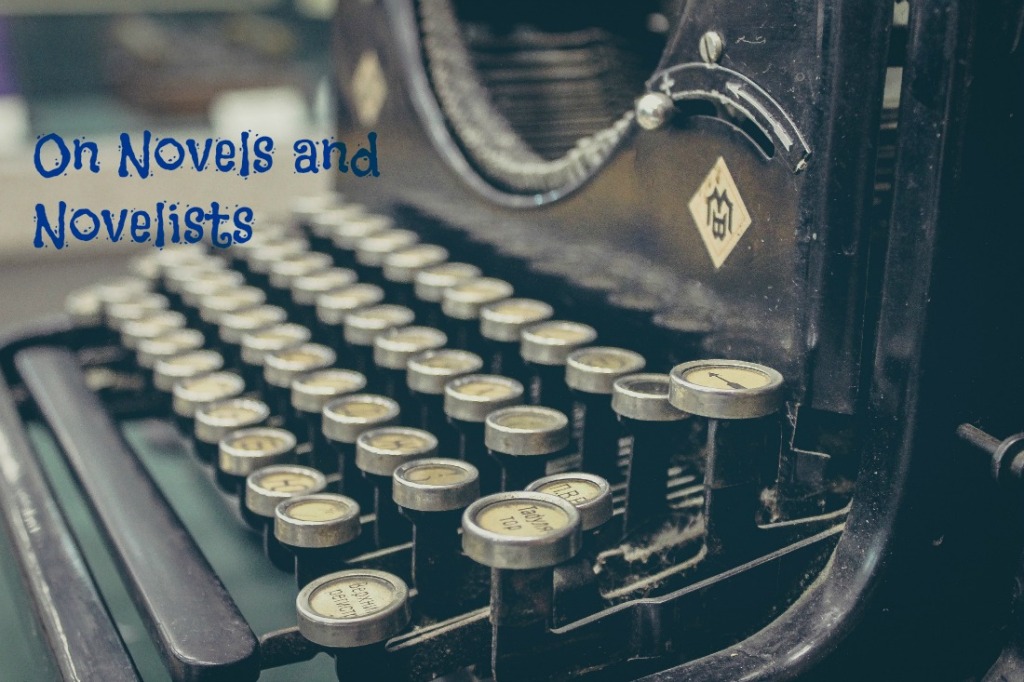Out with vampires, in with haunted houses: the ghost story is back
Just in time for Halloween (or shortly thereafter), here are several new ghost stories:
It has been supplanted in recent years by vampires, witches and other monsters, but now the good old-fashioned ghost story is back with a bang, with everyone from debut novelists to established literary stars such as David Mitchell and Gillian Flynn hoping to raise the hairs on readers’ necks this Halloween.
Read here about the following upcoming publications:
- The Grownup by Gillian Flynn
- Slade House by David Mitchell
- Little Sister Death by William Gay
- Rawblood by Catriona Ward
- The Watchers by Neil Spring
- The Loney by Andrew Michael Hurley
- The Taxidermist’s Daughter by Kate Mosse
“A good ghost story asks the reader to examine the horror within – but it’s in a safe and contained way,” says Catriona Ward. See what the other authors mentioned here have to say about why they have written a ghost story and why they think readers enjoy ghost stories.
Edna O’Brien: from Ireland’s cultural outcast to literary darling
Ed Vulliamy profiles Irish author Edna O’Brien. Now 84, O’Brien has not always been appreciated in her native land. Her “first and great novel,” The Country Girls was hailed in London, where it won the Kingsley Amis award, but banned in Ireland. This difference in the reception of her book, Villiamy writes, “etched the course of O’Brien’s life.”
Vulliamy explains how O’Brien’s relationship to Ireland while living and writing abroad played out. He places her squarely within the context of other Irish writers:
The extent of the Irish domination of literature in English during the 20th century – per capita – is staggering. From a country of its size, consider: Yeats, Joyce, Shaw, Stoker, Wilde, Beckett, Synge, O’Casey, Butler, Flann O’Brien, Heaney, Trevor – and it continues in Mahon, Banville, McGahern and Tóibín.
Jonathan Franzen’s Crackling Genius
In a long article for the New York Times, Rachel Kushner visits Jonathan Franzen in Santa Cruz, CA. Having just finished reading Franzen’s latest novel, Purity, Kushner wanders through a conversation with Franzen about the background of the novel.
Read here how Kushner and Franzen meandered through topics that include Catholicism, Dostoyevsky, Tolstoy, Flannery O’Connor, East Germany, Edward Snowden, capitalism, and the death of Franzen’s cousin—“how this cousin made sense of his difficult life.”
Truman Capote’s Brooklyn: Never-Before-Seen Pictures of Truman Capote, Taken by David Attie
Eli Attie, son of photographer David Attie, describes how he found previously unknown photos his father had taken of Truman Capote in Brooklyn, NY.
Eli Attie wrote the afterword for _ Brooklyn: A Personal Memoir_ by Truman Capote, with the lost photographs of David Attie, to be published on November 3, 2015.
Andy Weir on his strange journey from self-publishing to Hollywood
I haven’t read Andy Weir’s novel The Martian, but I loved the movie. (I saw it in 3-D, which I highly recommend.) I knew the general story of how the work had come into being: how Weir did massive amounts of research, published it serially online, then crowdsourced some of the science concepts to make the science part of science fiction incredibly accurate.
Here writer Sara Vilkomerson explains how the main character, botanist Mark Watney, came into existence:
He’s a lovable character who’s part Han Solo, part MacGyver…and one big part Andy Weir. “My theory is that every protagonist is someone the author wants to be or who the author wants to screw,” says Weir, 42. “Just so we’re clear, Mark Watney is who I want to be. He has all the qualities I like about myself magnified without any of the qualities I dislike.”
This article appeared in Entertainment Weekly in November 2014, just as production on the film version of The Martian was commencing.

